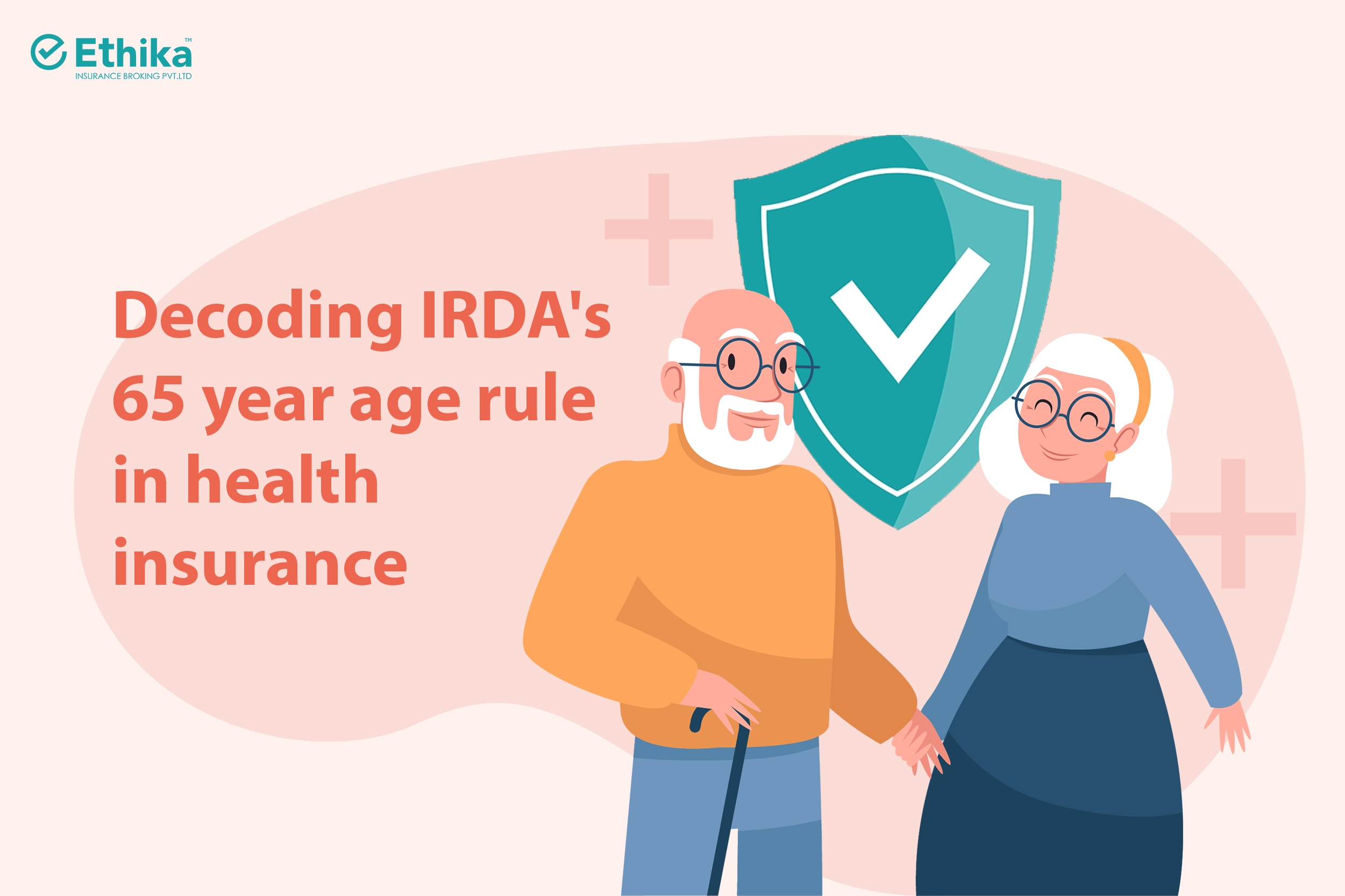
In a significant step towards inclusivity, the Insurance Regulatory and Development Authority of India (IRDAI) recently lifted the age limit for buying health insurance policies. Previously, insurers could set an entry age cap at 65, which limited many senior citizens from obtaining coverage. Now, the regulatory change allows people over 65 to buy health insurance. However, in a free-market economy, where business considerations drive insurer decisions, will this rule make a tangible difference in accessibility for seniors?
What’s on this page?
Understanding the Age Cap Removal in Health Insurance: A Step Towards Inclusivity
The removal of the age cap aims to make health insurance more accessible to India’s aging population, allowing them the financial security of healthcare coverage in their senior years. But while this regulatory change is a positive step, it’s not a guaranteed solution. In a free-market economy like India’s, where insurance companies balance regulatory compliance with profitability, the age cap removal is just one part of the equation. Insurers retain the flexibility to make business decisions about risk management, policy structure, and pricing based on their financial models.
How age cap removal in Health Insurance works in a Free Market Economy
In a free-market setting, insurers must manage risk and ensure profitability, which means they still have the right to adjust policy terms and premiums based on age. Here’s how business considerations continue to shape senior citizens’ access to health insurance:
- Risk-Based Pricing
In health insurance, age correlates strongly with health risk, as older individuals generally experience more frequent and costly medical needs. While the IRDAI has removed the upper age limit, insurers still need to balance their portfolios. This is likely to result in higher premiums for senior policies, especially for individuals over 70. As a result, while policies may be technically available, the high premiums can remain a barrier for many older adults. - Policy Terms to Manage Risk
To mitigate the financial risks of insuring an older population, insurers may include terms like higher co-payments, room rent limits, and exclusions for certain pre-existing conditions. These policy adjustments allow insurers to share the claim burden with the insured, which may discourage some seniors from purchasing or fully utilizing these policies. - Profitability and Market Focus
In a competitive, profit-driven market, insurers often prioritize products that are financially sustainable. This dynamic may shift focus toward younger demographics who present lower financial risk and are more profitable. Consequently, while seniors are eligible for coverage, insurers may invest more in marketing products for younger segments, leaving fewer options tailored for seniors in terms of affordability and benefits.
Government Support: PMJAY as an Alternative for Seniors Over 70
For seniors above 70, particularly from economically weaker sections, the Pradhan Mantri Jan Arogya Yojana (PMJAY) provides an alternative to private insurance. This government-backed scheme offers coverage of up to ₹5 lakh per family per year, with eligibility based on income rather than age or health profile. PMJAY’s public welfare approach fills an essential gap for seniors who may not be able to afford private insurance premiums in a free-market setting, offering healthcare security without the need for complex underwriting or high premiums.
Key Considerations When Choosing Health Insurance as a Senior Citizen
- Lifetime Renewability
Look for policies that offer lifetime renewability to ensure continuous coverage, particularly important for seniors who may need health insurance the most in their later years. - Daycare and OPD Coverage
Consider policies that include outpatient department (OPD) and daycare coverage, which can be beneficial for seniors who frequently need minor procedures or consultations that don’t require hospitalization. - Room Rent Limits and Co-Payments
Room rent capping and co-payment requirements are common in senior policies to manage insurer risk. These can increase out-of-pocket expenses, so it’s essential to understand the financial commitments before choosing a policy. - Pre-existing Conditions and Waiting Periods
Many policies include waiting periods for pre-existing conditions, which could impact coverage. Shorter waiting periods are beneficial, so it’s wise to compare policies and select one that meets immediate healthcare needs.
Final Thoughts: Navigating Health Insurance for Senior CItizens in a Free Market Economy like India
While IRDAI’s removal of the age cap on health insurance makes a statement about inclusivity, its impact in a free-market economy depends on insurers’ business decisions. For seniors, finding the right coverage requires understanding the terms, comparing policy options, and considering alternatives like PMJAY for affordable, comprehensive care. Balancing regulation with market realities, India’s insurance landscape now offers seniors more choice—but navigating those choices requires awareness of both the opportunities and limitations within a profit-driven system.
FAQs:
1. Can I buy health insurance after turning 65?ce companies are offering health insurance plans for senior citizens?
Yes, with IRDAI’s latest rule, there’s no longer an upper age limit for purchasing health insurance in India. However, premiums and policy terms will vary based on age.
2. Are there policies specifically for those above 70?
Yes, some insurers offer senior-specific policies, though they may have higher premiums and co-payment clauses. Additionally, PMJAY offers coverage for seniors over 70 from lower-income backgrounds, filling an essential gap.
3. Will I have to pay higher premiums as I age?
Generally, yes. Age-based risk assessment leads to higher premiums for older individuals. Comparing policies for benefits and coverage can help find an option that meets both needs and budget.
4. What government schemes are available for seniors?
Pradhan Mantri Jan Arogya Yojana (PMJAY) provides coverage of up to ₹5 lakh annually for vulnerable families, including seniors over 70, making it a viable option for those unable to afford private insurance.
5. Can I add my senior family member to an existing policy?
Some family floater policies allow adding senior members but may require higher premiums or co-payments. Assessing individual policies for seniors can often offer better coverage options.